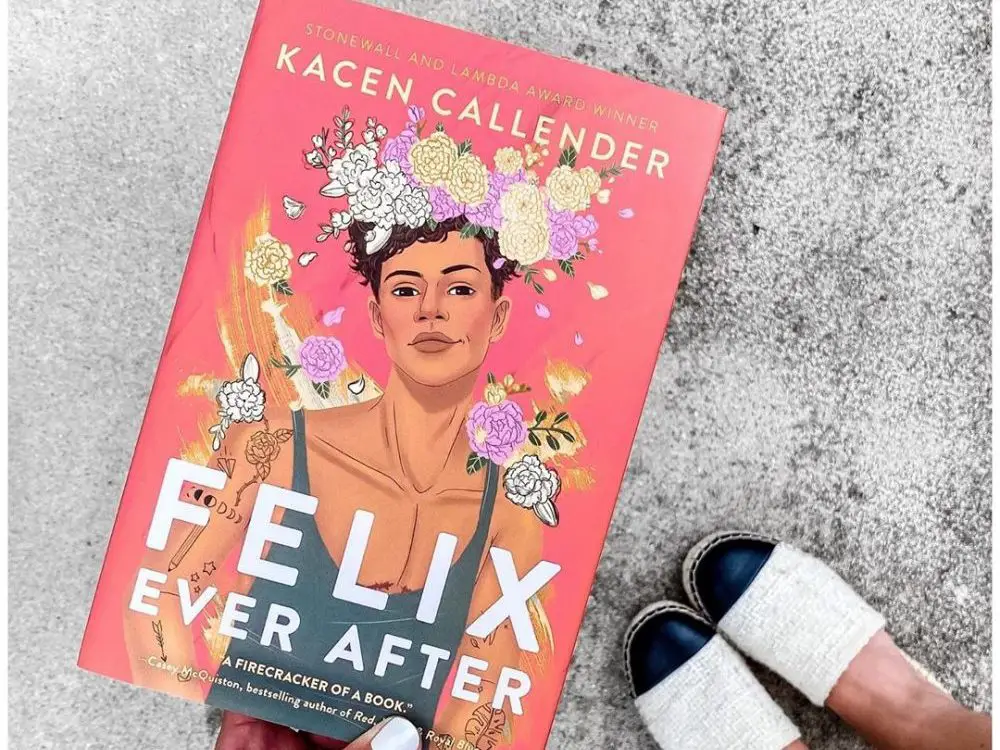“Felix Ever After,” a young adult novel by Kacen Callender, was released in May 2020. It follows Felix Love, a Black, queer, transgender teenager, as he navigates his relationships with his friends and family, falls in love for the first time and, most importantly, begins discovering his identity and sense of self-worth.
Upon its release, “Felix Ever After” made the indie bestseller list and received rave reviews from critics, authors and consumers alike. It was also recently announced that the book is being adapted into a TV series by Amazon, so fans can look forward to more of Felix in the future.
Felix is a student at St. Catherine’s, an art high school in Brooklyn. Like many teenagers, he’s stressed about whether or not he’ll get into his dream college, Brown University, and he’s competing with another student, Declan, for the one scholarship Brown awards to a St. Catherine’s student each year.
Also, like many teenagers, Felix desperately wants to be in love, but he hasn’t been on more than three dates with anyone in his life. “Felix Ever After” begins when Felix has already been out as transgender for several years. He’s proud of his identity and doesn’t try to hide it, but he worries that being Black, queer and transgender at the same time is one marginalization too many and might prevent anyone from falling in love with him.
Felix’s world is turned upside down when he arrives at school one day to find that someone has hacked into his Instagram and posted a gallery of his private, pre-transition photos, along with his deadname, right in the main hallway for everyone to see. At the same time, he begins receiving a series of transphobic messages on Instagram from an anonymous student.
Felix is convinced the person responsible for the gallery is his rival, Declan, and he devises a plan for revenge. However, he quickly realizes he’s in over his head as the revenge plot gets more and more complicated, eventually spiraling out of control.
During Felix’s quest for revenge, there are many ups and downs, but the plan helps set him on the path toward the self-discovery that he desperately needs. Throughout the story, Felix navigates how he feels about himself and his identity, and eventually, he finds self-love and realizes that he is worthy of love from others as well.
Honestly, there are so many things I loved about “Felix Ever After.” I read the entire book in two days, which shows just how much I genuinely enjoyed it. I will admit that the first 100 or so pages were a bit slow, but once I reached the last two-thirds of the book, I couldn’t put it down.
What immediately stood out was how much I liked all of the characters. For starters, the representation in “Felix Ever After” is great. It’s rare to find a book featuring a queer trans person of color main character like Felix, which is part of what motivated Callender to write the novel. In an interview, they said, “I went into ‘Felix Ever After’ knowing I would want to write about a person like me, someone I had never before seen in books or in any media: A Black, queer, trans masculine person who identifies as a demiboy.” Felix’s character is based, in part, on Callender themselves, which makes all of the character’s experiences feel incredibly authentic.
https://www.instagram.com/p/B_zr1xWgnT9/
Felix’s best friend, Ezra, is also a queer person of color, and most of the other important characters are queer as well. Throughout the book, they all have conversations about coming to terms with their identities, what it means to be a part of the LGBTQ+ community and the discrimination the community still faces, despite how far things have come. At times, the conversations came close to feeling cliché, but they still always felt representative of the experiences many queer people have, myself included.
On top of the abundance of good representation, almost all of the characters felt realistic and well developed, which is likely thanks to Callender’s own relationship with the LGBTQ+ community. I’m always happy to find a good book with good queer representation, and it’s even better when it’s clear the author is writing from their own experiences.
“Felix Ever After” also does a great job of representing some of the more unpleasant aspects of being a queer trans person. There are many moments of transphobia and homophobia that aren’t exactly fun to read, but they are necessary. To write about a queer trans character in our world without touching on the discrimination and prejudice they face would feel inauthentic, and I’m glad Callender didn’t shy away from those topics.
Queer trans people of color especially face horrifying levels of discrimination, prejudice and harassment, even from people within the LGBTQ+ community. Transphobia within the queer community is very real, but it’s not talked about as much as it should be, so I appreciate that Callender’s book tackles it. At several points in the novel, Felix has to confront transphobic comments from other queer people, people he thought were his friends.
Fortunately, Felix doesn’t have to face these things alone. Ezra is always there to back him up, and he supports Felix unconditionally throughout the book. Their friendship is another big part of why I love the book so much. Neither Felix nor Ezra is perfect, which makes their characters feel even more realistic. They’re honest with each other, and they continuously work through everything that comes their way together. Really, Felix and Ezra are a pretty perfect example of what a healthy friendship should be, and it makes the entire book wholesome and heartwarming.
Ultimately, “Felix Ever After” is a story about discovering yourself, learning to love yourself for who you are and accepting that you are worthy of love from others. Those are messages that I think everyone could use a reminder of, especially the QTPOC youth that the book will really resonate with.

















